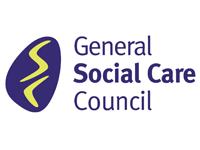
The head of the General Social Care Council has said she was “surprised” at the government’s decision today to scrap the body and is seeking an early meeting to discuss its implications.
Chair Rosie Varley said there had been no discussion of the costs, benefits and consequences of the plan to abolish the GSCC and transfer its powers to the Health Professions Council. She said she wanted to ensure the sector’s “professional integrity” remained paramount in the new arrangements.
Her reaction has been echoed across the sector, which is slowly digesting the news that the GSCC is to be abolished as part of a widespread review of “arm’s-length bodies” within the Department of Health.
Varley said: “We were surprised by this decision. We recognise the economic imperative behind the proposal. However discussions have yet to take place about how this will work, including the costs, benefits and wider consequences. We are seeking an early meeting with the Health Professions Council and the government.”
Fran Fuller, chair of the British Association of Social Workers, said she was “gobsmacked”.
She said: “I have my reservations; it could be out of the frying pan into the fire.”
She said she was concerned that the HPC worked to a health model, “which is very different to a social care model”, and added that a decision should have been delayed until the new College of Social Work, which is currently being developed, had been formed.
In justifying the decision, the government said that the HPC’s current charge for registrants – of £76 a year – was far less than social workers would be charged if plans to make the GSCC self-funding were taken forward. However, it is more than double the current GSCC charge of £30 a year, which is subsidised by government funding.
Helga Pile, Unison’s national officer for social work, said: “Many social workers will baulk at the prospect of the annual registration fee more than doubling at a time of pay freezes and rising living costs. Too few employers reimburse this and it is hard to see what added value there will be for social workers.
“We will be looking at the implications of these cuts and whether conflicts of interest may arise.”
Richard Jones, president of the Association of Directors of Adult Social Services, said it was a “pity” because after a “difficult birth” the body seemed to have turned the corner.
However, he saw the GSCC’s abolition as an opportunity for the College of Social Work, provided that it did not imply any downgrading of the government’s wider programme to improve and reform social work.
He said: “I don’t think this is downgrading the profile of social work itself. [The HPC] is saying it can do it [registration and regulation] more efficiently, which social workers would welcome. I would be really concerned about the profile of social work if we started to see a row back on the Social Work Reform Board’s work.”
Anna van der Gaag, chair of HPC, said: “The HPC acknowledges the work that GSCC has done in regulating social workers in England and in bringing about changes to regulation which reflect changes in the wider world of social care.”
“We are committed to establishing good working relationships with the social work profession, employers, education providers, user groups and other stakeholders as well as our colleagues in the regulatory councils in Northern Ireland, Scotland and Wales.”
Responding to the changes, shadow health secretary and Labour leadership contender Andy Burnham said: “It is essential that social workers are appropriately regulated and that the functions of GSCC are not watered down in the move to the Health Professions Council.”
What do you think? Have your say on CareSpace
Related stories
What GSCC abolition could mean for social workers
What is the role of the Health Professions Council and how other social care quangos are chanding


 Bournemouth, Christchurch and Poole
Bournemouth, Christchurch and Poole  Hampshire County Council
Hampshire County Council  Lincolnshire County Council
Lincolnshire County Council  Norfolk County Council
Norfolk County Council  Northamptonshire Children’s Trust
Northamptonshire Children’s Trust  South Gloucestershire Council
South Gloucestershire Council  Wiltshire Council
Wiltshire Council  Wokingham Borough Council
Wokingham Borough Council  Children and young people with SEND are ‘valued and prioritised’ in Wiltshire, find inspectors
Children and young people with SEND are ‘valued and prioritised’ in Wiltshire, find inspectors  How specialist refugee teams benefit young people and social workers
How specialist refugee teams benefit young people and social workers  Podcast: returning to social work after becoming a first-time parent
Podcast: returning to social work after becoming a first-time parent  Podcast: would you work for an inadequate-rated service?
Podcast: would you work for an inadequate-rated service?  Family help: one local authority’s experience of the model
Family help: one local authority’s experience of the model  Workforce Insights – showcasing a selection of the sector’s top recruiters
Workforce Insights – showcasing a selection of the sector’s top recruiters 

 Facebook
Facebook X
X LinkedIn
LinkedIn Instagram
Instagram
Comments are closed.